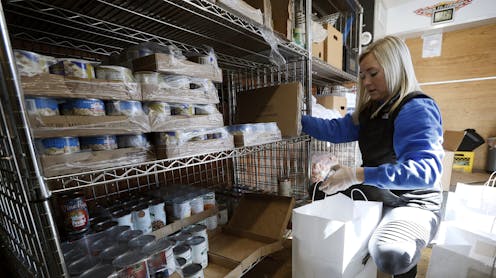If you've ever been denied a checking or savings account, it might be because of ChexSystems. Banks rely on ChexSystems reports to assess your banking history, determining whether you're a safe candidate for a new account. Even a simple mistake like overdrafting your account or bouncing a check can result in a ChexSystems report that follows you for years. Here, we'll explain what ChexSystems is, how it works, and what steps you can take if you find yourself listed in their database.
What Is ChexSystems?
Chex Systems, Inc., commonly known as ChexSystems, is a consumer reporting agency that collects information about your checking and savings account activity. It compiles this data into a Consumer Disclosure Report, more commonly referred to as a ChexSystems report. This report includes details of your past banking behavior, such as involuntarily closed accounts or unpaid bank fees, and it retains this information for five years.
When you apply for a new bank account, banks and credit unions often pull your ChexSystems report to review your banking history. If your report shows negative information, such as unpaid fees or account closures, you may have difficulty opening a new account. ChexSystems is similar to credit reporting agencies like Experian or Equifax, but instead of tracking your credit activity, it monitors your banking behavior.
Find More about, Can I See My ChexSystems Report Online?
What’s in a ChexSystems Report?
A ChexSystems report contains your banking history from the past five years. Unlike credit reports, which include debt-related information such as loan payments and credit card balances, ChexSystems reports focus solely on your interactions with checking and savings accounts. Here’s what you can typically find in a ChexSystems report:
Identifying Information: Your report will include personal information such as your Social Security number, driver’s license number, and any contact details linked to your bank accounts.
Account History: This section lists all your checking and savings accounts, including the dates they were opened and closed.
Account Misuse: This details any negative reasons for account closures, such as suspected fraud or insufficient funds, and notes whether you’ve paid any outstanding amounts owed.
Check Activity: Information about checks you've ordered and any that have bounced
How Do Banks Use ChexSystems?
Banks rely on ChexSystems reports to evaluate your risk level as a potential customer. If your report indicates past banking problems, such as unpaid fees or accounts closed for mismanagement, the bank may decide that you’re too risky and deny your application. Essentially, ChexSystems helps banks minimize their exposure to customers who have a history of account misuse.
How to Check If Your Name Is on ChexSystems
If you're unsure whether you're listed in ChexSystems, you can easily find out by requesting your Consumer Disclosure Report. Every consumer is entitled to one free ChexSystems report per year under the Fair Credit Reporting Act (FCRA). If you've been denied a new bank account due to your ChexSystems report, you’re also eligible to request an additional copy. Here’s how you can check,
Visit the ChexSystems Website: Go to www.chexsystems.com and find the “Free Consumer Disclosure” section.
Fill Out the Request Form: Complete the online form with your identifying information, such as your Social Security number, driver’s license or state identification number, and current or previous addresses.
Submit Your Request: Once submitted, you can access your report online almost immediately, or you can request a copy to be mailed to you.
Alternatively, you can call ChexSystems at 1-800-428-9623 or mail a written request to their address with the required information.
What to Do If You’re Listed in ChexSystems
Finding your name on a ChexSystems report doesn’t mean you’re shut out of banking forever. Although it can be challenging to open a new account with a negative record, there are steps you can take to improve your situation.
1. Dispute Inaccuracies
If you find inaccurate information on your ChexSystems report, you have the right to dispute it. You can file a dispute with ChexSystems or with the bank or retailer that reported the information. Here’s how:
Submit a Dispute Online: Visit the ChexSystems website and fill out the dispute form. Be sure to include any supporting documents that prove your claim.
Contact the Furnisher Directly: Sometimes, the bank or retailer that reported the issue can correct the information. Contact them directly to dispute the report.
ChexSystems is required to investigate disputes within 30 days. If the investigation finds that the information is inaccurate, it will be corrected or removed from your report.
2. Resolve Outstanding Issues
If your ChexSystems report contains valid negative information, the best course of action is to resolve any outstanding issues. For example, if you owe money to a bank, pay off the debt and request that the bank update your ChexSystems report to reflect that the debt has been paid.
While the negative item may remain on your report until it naturally falls off after five years, updating the status to "paid" can improve your chances of getting approved for a new account.
3. Consider Second-Chance Banking
Some banks and credit unions offer "second chance" accounts specifically designed for people with a negative banking history. These accounts often have fewer features and higher fees, but they provide an opportunity to rebuild your banking record. Positive activity in a second-chance account can eventually help you qualify for a standard account.
Examples of second-chance banking options include,
► Chime’s Second Chance Banking Accounts
► Credit Union of Southern California’s Aspire Checking
► SoFi’s Online Checking Account
► Varo Bank’s Online Accounts
► Wells Fargo’s Clear Access Banking
These accounts are typically more lenient regarding past banking issues, but you should still verify the bank’s specific requirements before applying.
4. Join an Open Account as a Co-Owner or Authorized User
If you’re unable to open your own account, consider becoming a co-owner or authorized user on someone else’s bank account. Depending on the bank’s policies, the primary account holder can add you as:
Authorized Signer: You can sign checks and make withdrawals, but you don’t own the account.
Authorized User: You can access the account for specific tasks like paying bills or transferring money.
Joint Owner: You have equal ownership and full access to the account, even if the other owner passes away.
For the primary account owner, this option requires careful consideration since the co-owner’s behavior could impact the account.
Banks That Don’t Use ChexSystems
If you're having trouble finding a bank that will approve your application, consider looking for financial institutions that don’t use ChexSystems reports. Here are some options:
Chime’s Second Chance Banking Accounts: A popular online bank that doesn’t rely on ChexSystems.
SoFi’s Online Checking Account or High-Yield Savings Account: Offers flexible banking without a ChexSystems check.
Wells Fargo’s Clear Access Banking: A checking account that does not require a traditional ChexSystems review.
Some banks may check another type of report, such as Early Warning Services (EWS), but second-chance accounts are generally more forgiving of past banking mistakes.
Frequently Asked Questions About ChexSystems
How Do I Know If I'm in ChexSystems?
You can check if you have a ChexSystems file by requesting your Consumer Disclosure Report at ChexSystems.com.
How Do I Get Out of ChexSystems?
Accurate information can’t be removed from your ChexSystems report until five years have passed. However, you can dispute errors and update the status of paid debts to improve your report.
How Long Do You Stay on ChexSystems?
Negative information stays in your ChexSystems file for five years after it’s reported, after which it will be automatically removed.

Being listed on ChexSystems can create significant hurdles when trying to open a new bank account, but it’s not a permanent sentence. By understanding your report, disputing errors, resolving outstanding debts, and exploring second-chance banking options, you can take control of your financial future. Stay proactive about managing your accounts, and work towards maintaining a clean ChexSystems report to ensure smoother banking experiences ahead.


















 English (United States) ·
English (United States) ·